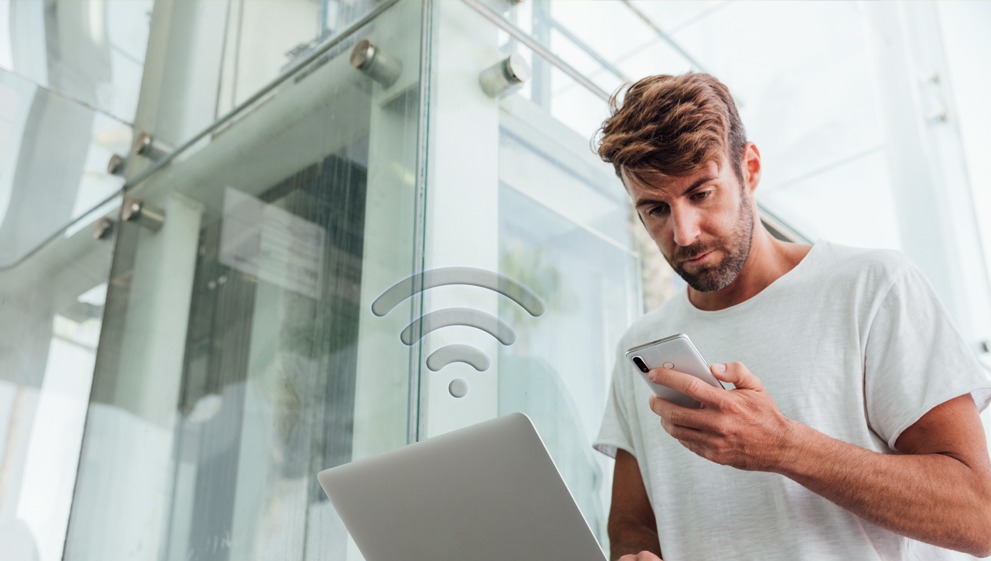In this increasingly connected world, public Wi-Fi networks have become ubiquitous, offering convenient internet access at cafes, airports, hotels, and more. However, the ease of connectivity comes with significant risks to your online privacy and security. Hackers and cybercriminals often target unsuspecting users on these networks, seeking to steal sensitive information or compromise devices. This is where a Virtual Private Network (VPN) comes in as an essential tool for protecting yourself on public Wi-Fi. In this article, we’ll explore the risks associated with public Wi-Fi and how a VPN can keep you safe while browsing.
Understanding the Risks of Public Wi-Fi
Public Wi-Fi networks are inherently less secure than private networks, as they often lack proper security measures and are accessible to anyone within range. This leaves users vulnerable to various threats that can compromise their data and privacy. Let’s take a closer look at some of the risks you face when using public Wi-Fi without a VPN.
Data Interception and Eavesdropping
One of the most significant dangers of using public Wi-Fi is the potential for data interception and eavesdropping. Hackers can easily set up fake Wi-Fi hotspots or use packet sniffing tools to capture unencrypted data transmitted over the network. This means that any information you send or receive while connected to an unsecured Wi-Fi VPN free, such as login credentials, personal messages, or financial details, can be intercepted and stolen by malicious actors.
Man-in-the-Middle Attacks
Man-in-the-middle (MITM) attacks are another common threat on public Wi-Fi networks. In this type of attack, a hacker intercepts the communication between your device and the websites or services you’re accessing. By positioning themselves between you and your intended destination, attackers can monitor, modify, or steal your data without your knowledge. MITM attacks can be particularly dangerous when accessing sensitive accounts or conducting financial transactions over public Wi-Fi with VPN.
Malware and Phishing Threats
Public Wi-Fi networks also increase your exposure to malware and phishing attacks. Cybercriminals can exploit vulnerabilities in the network or use social engineering tactics to trick users into downloading malicious software or revealing sensitive information. Once your device is infected with malware, attackers can gain unauthorized access to your files, spy on your activities, or even use your device to spread the infection to others on the network.
How a VPN Protects You on Public Wi-Fi
A VPN in public Wi-Fi is your first line of defense against the risks associated with unsecured networks. By encrypting your internet connection and routing your traffic through a secure tunnel, a VPN shields your data from prying eyes and keeps your online activities private. Here’s how a VPN works to protect you:
Data Encryption
When you connect to a VPN, all your internet traffic is encrypted before it leaves your device. This means that even if a hacker manages to intercept your data, they won’t be able to read or make sense of it. VPN in WiFi uses strong encryption algorithms, such as AES-256, to ensure that your data remains confidential and secure. With a VPN, you can browse the web, send emails, and use online services without worrying about your information being compromised.
Masking Your IP Address
Another key benefit of using a VPN for public WiFi is that it masks your real IP address. When you connect to a VPN server, your device is assigned a new IP address belonging to the VPN provider. This makes it much harder for hackers, websites, or network administrators to track your online activities or determine your physical location. By hiding your IP address, a VPN helps maintain your anonymity and privacy while using public Wi-Fi.
Avoiding Location-Based Tracking
Many websites and online services use your IP address to determine your geographic location. This information can be used for targeted advertising, content restrictions, or even price discrimination. When you use a VPN WiFi hotspot, your apparent location is based on the VPN server you’re connected to, rather than your actual location. This allows you to bypass location-based tracking and access content that may be restricted in your region.
Secure Access to Sensitive Accounts
Using a VPN on public WiFi is particularly important when accessing sensitive accounts, such as online banking, email, or social media profiles. By encrypting your connection and masking your IP address, a VPN adds an extra layer of security to protect your login credentials and personal information from being stolen. With a VPN, you can safely check your bank balance, send confidential emails, or log into your social media accounts without fear of compromise.
When to Use a VPN on Public Wi-Fi
While using VPN on public WiFi is always a good idea, there are certain situations where it becomes absolutely essential. Here are some scenarios where you should never connect to public Wi-Fi without a VPN:
Conducting Financial Transactions
If you need to access your online banking, make a purchase, or conduct any other financial transaction over public Wi-Fi, always use a VPN for unsecured WiFi. Financial information is highly sensitive and valuable to hackers, so protecting it with encryption is crucial. A VPN ensures that your financial details remain secure, even if the network itself is compromised.
Accessing Work or School Accounts
When working remotely or accessing school resources over public Wi-Fi, using a secure WiFi vpn is essential to protect confidential information. Many organizations have strict security policies that require employees to use a VPN when connecting to company networks or accessing sensitive data. By using a VPN with WiFi hotspot, you can ensure that your work communications and files remain private and secure, even on untrusted networks.
Benefits of Using a VPN Beyond Public Wi-Fi
While the primary focus of this article is on the importance of using a VPN on public Wi-Fi, it’s worth noting that a VPN offers benefits beyond just securing your connection on untrusted networks. A VPN can also help you:
- Bypass internet censorship and access geo-restricted content
- Protect your privacy from ISP tracking and government surveillance
- Prevent bandwidth throttling based on your online activities
- Secure your internet connection on all networks, not just public Wi-Fi
Stay Protected with Quick Heal
Public WiFi VPN blocked is a crucial tool for anyone who values their online privacy and security. By understanding the risks associated with unsecured networks and the ways in which a VPN can protect you, you can take control of your digital safety. Whether you’re using a VPN on public WiFi to check your email, access sensitive accounts, or simply browse the web, a VPN for WiFi network ensures that your data remains confidential and secure.
Don’t let the convenience of public Wi-Fi come at the cost of your privacy. Invest in a reputable VPN service like Quick Heal Total Security and make it a habit to connect to your VPN for public WiFi whenever you’re using an untrusted network. By prioritizing your online security, you can enjoy the benefits of public Wi-Fi without putting your personal information at risk. Stay safe, stay secure, and always use VPN public WiFi.


